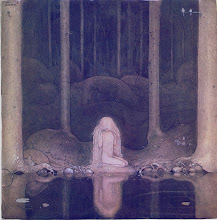Kostnaden för att sekvensera DNA har sjunkit dramatiskt, liksom kostnaden för att syntetisera DNA-strängar. Kommer detta att öppna för möjligheten att framtidens hackare ger sig på den genetiska koden, i sina garage? Det är inte omöjligt, konstaterar The Economist. Kanske är det till och med nödvändigt. Hacking är, som bekant, alla uppfinningars moder och DNA-sekvens är kod.
Mac Cowell har grundat organisationen DIYbio, som vill göra biologin tillgänglig för innovativ hacking, svärmsamarbete och citizen science utanför universitet och stora forskningslaboratorier, på samma sätt som datorteknologi. Istället för hardware och software - wetware.
Vetenskapsjournalisten Annelee Newitz definierar målen för the biopunk movement i en artikel publicerad 2001, i spåret av kartläggningen av det mänskliga genomet i Human Genome Project:
"Biopunks are the visionaries and biotech wizards whose imaginations were set on fire by the knowledge that scientists had finally sequenced the human genome last year. Biopunks get off on creative genetic engineering, RNA research, cloning, and protein synthesis. Biopunks hack genomic data, lining up human genomes next to mouse genomes to find out what the two species have in common and what they don't (surprise: they have way more in common than you could possibly ever imagine).
Unlike the biotech corporate drones at places like the Maryland-based firm Celera, biopunks believe in the liberation of genetic data. (...) As you might have guessed, HGP public data is for biopunks – you too can browse your genome for free at www.ncbi.nlm.nih.gov/genome/guide/human.
Selling genomic data for commercial use is for reactionaries."
Om rådskommunismens relevans (ur OEI #104–105)
9 månader sedan
